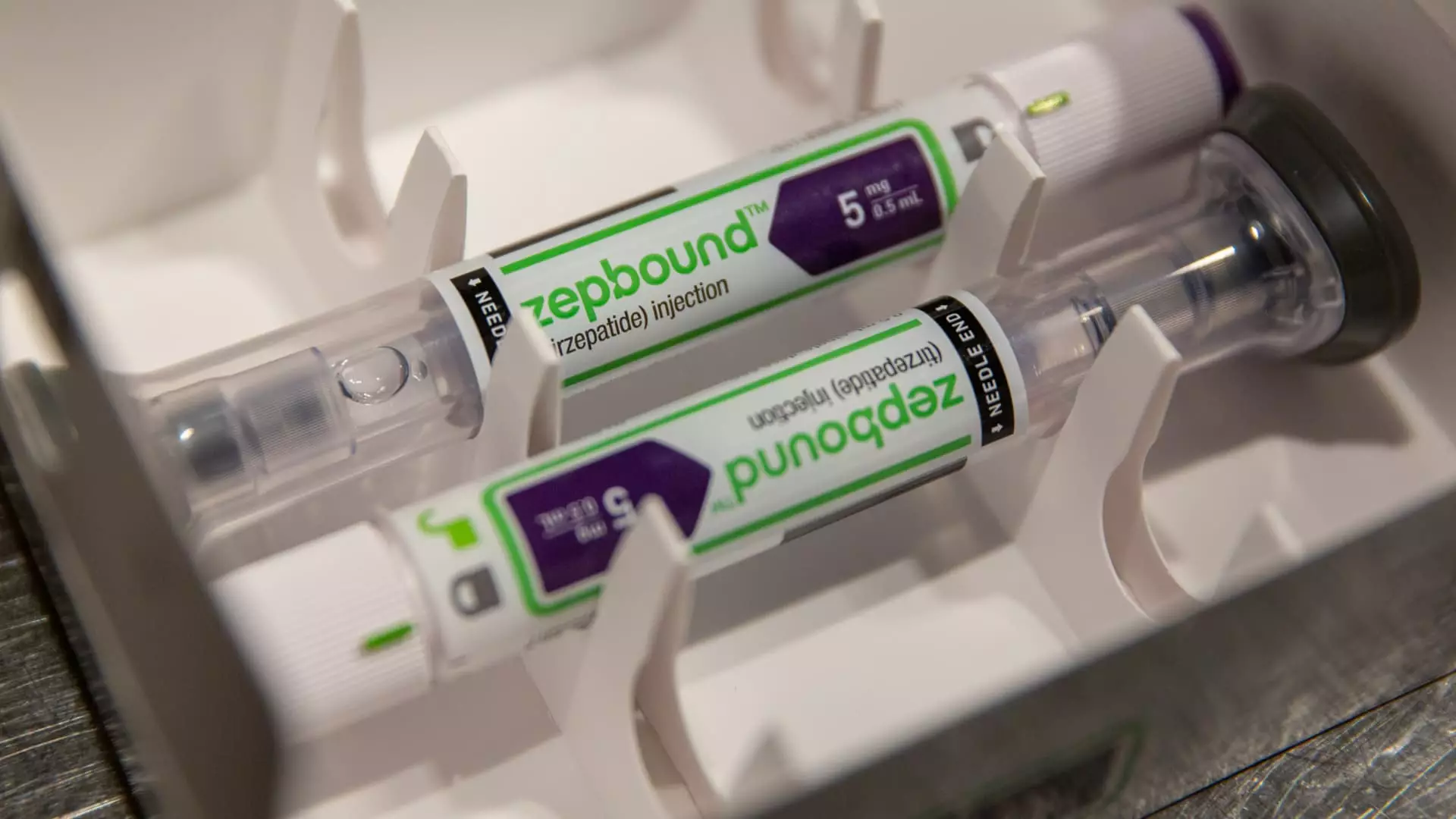Eli Lilly’s weight loss drug, Zepbound, has demonstrated significant benefits in patients with heart failure and obesity, based on late-stage trial data released by the company. The findings suggest that Zepbound, along with other popular GLP-1 drugs, may offer health advantages beyond weight loss and blood sugar regulation. This could potentially lead to broader insurance coverage for these treatments. Patients who participated in the trial showed a 38% lower likelihood of being hospitalized or dying due to heart complications when compared to those who received a placebo. Additionally, they were less likely to require an increase in heart failure medication. Zepbound was also found to improve heart failure symptoms and physical limitations, offering hope for those struggling with this condition.
The trial involved over 700 patients with heart failure with preserved ejection fraction (HFpEF) and obesity, some of whom also had diabetes. HFpEF occurs when the heart is unable to pump enough blood to meet the body’s demands. Patients with HFpEF often experience a range of symptoms and physical limitations, such as fatigue, shortness of breath, and reduced exercise capacity. Eli Lilly emphasizes that this condition places a significant burden on patients’ daily lives and well-being. With approximately 6.7 million adults in the U.S. experiencing heart failure, HFpEF accounts for nearly half of all cases. Moreover, almost 60% of affected individuals in the U.S. also struggle with obesity, highlighting the urgent need for effective treatment options.
The safety profile of Zepbound in the trial was consistent with previous studies of the drug. The most common side effects reported were gastrointestinal in nature, including nausea and diarrhea, with severity ranging from mild to moderate. Eli Lilly plans to present the trial data at an upcoming medical meeting and submit it to a peer-reviewed journal for further scrutiny. The pharmaceutical company’s competitor in the GLP-1 market, Novo Nordisk, has also made advancements in this area. Novo Nordisk recently submitted an application for the use of its weight loss drug, Wegovy, in treating patients with HFpEF. The FDA has already approved Wegovy for reducing the risk of serious heart complications, signaling progress in the development of treatments for heart failure patients.
Both Novo Nordisk and Eli Lilly are actively exploring the potential of their drugs in treating various conditions, including chronic kidney disease and fatty liver disease. GLP-1 drugs function by mimicking gut hormones to suppress appetite and regulate blood sugar. While Zepbound targets both GLP-1 and GIP hormone receptors, Wegovy focuses solely on GLP-1. This targeted approach may offer distinct advantages in the treatment of heart failure patients. The latest data from the trials indicate promising results, paving the way for future research and development in this vital area of healthcare.
Eli Lilly’s weight loss drug, Zepbound, has shown promising results in improving the health outcomes of patients with heart failure and obesity. The findings from the trial underscore the potential benefits of GLP-1 drugs in addressing the complexities of heart failure, offering hope for millions of individuals affected by this condition. With ongoing research and development efforts, pharmaceutical companies aim to enhance the quality of life for patients with heart failure and related comorbidities. The advancements in drug development and treatment options represent a significant step forward in the fight against heart failure and its debilitating impact on individuals’ well-being.



Leave a Reply